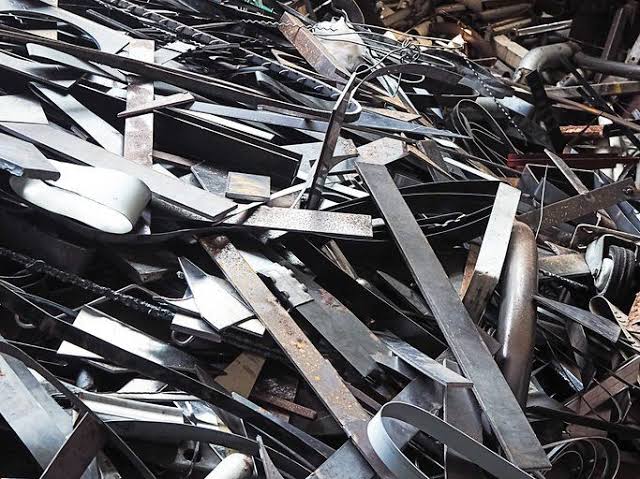NAIROBI,Kenya, May, 4 – Scrap metal dealers appear to be reading from different scripts in regard to the much-anticipated lifting of a three-month ban on their businesses.
While some traders have welcomed the move, others say they are yet to receive any communication on the way forward.
The latter complain, that they have been left in the dark since the government announced it would be lifting the freeze on the scrap metal trade, as no official clarification has been made to the effect.
For instance, Benson Wanjohi, says they have been informed they will have to undergo a fresh vetting exercise before they can be issued with an operating license,
Wanjohi who says he has met all the conditions the government had outlined for the operators, including paying the required Sh 150,000 fee, now says he is at a loss on who to approach, in order to go back to work.
“We are not yet out of the woods even after the government assured us the freedom on our businesses will be lifted by May 1. In fact, reports we are getting are that there is going to be a fresh vetting before one can be allowed back to business. As to who is going to undertake this exercise, we are yet to be informed,” he said.
On April 26 the Cabinet Secretary, Ministry of Industrialization, Trade, and Enterprise Development, Betty Maina, announced that the government would only allow licensed businessmen to operate, once the ban was lifted.
Under the revised regulations, licensed dealers, millers, and smelters are required to pay Sh250, 000 fees for over 5,000 kilograms of scrap metal, while agents would pay Sh150, 000 for 5,000 kilograms of their cargo.
Local collectors and those in the Jua kali informal sector will pay Sh50, 000 for 3,000 kilograms of scrap metal.
Steel fabricators, motor vehicle salvage operators and those who stock second-hand motor spare, electrical, and local welding machines, are supposed to pay Sh50, 000 for any amount of metal they hold.
In addition, all those who have applied for licenses will have to be vetted by a multi-agency team under the office of the County Commissioner.
And for any person who will be found undertaking the trade without a license, he risks paying a fine not exceeding Sh 10 million shillings or serving an imprisonment not exceeding three (3) years or both.
But Joseph Njuguna, who runs a scrap metal dealer shop near the Majengo slums in Nyeri town, says he is back in business and has lauded President Uhuru Kenyatta for heeding their grievances on the lifting of the moratorium.
He says despite the losses he incurred during the three-month ban, he remains optimistic his venture will soon be back on track from where he left.
“We are back in operation after the three months freeze on our businesses. However, despite the fact that we have lost a lot during the period, we are optimistic we shall soon be back on our feet,” he stated.
On April 12 the Kenya Iron and Scrap Metal Association (KIMSA) held day-long demonstrations in Nairobi, protesting the scrap metal ban, saying it was hurting their source of livelihood.
Led by the Association’s Secretary-General, Irshadali Sumra, the dealers later delivered a petition to the Ministry of Interior and Internal Coordination, demanding that the ban imposed on the industry be lifted.
They also held a meeting with Mrs. Maina, who promised to forward their grievances to the Head of State, before she could give the way forward.
President Kenyatta ordered a ban on the scrap metal business on January 20 this year, until proper guidelines to conduct the sector are put in place.
Among reasons he attributed to the ban include the widespread vandalism of government key installations such as power lines and rail lines, leading to disruption of vital services such as power supply and transport.
“As of today, we will no longer allow, and we have put a moratorium on the export or the buying or selling of any scrap material until we have put in place proper guidelines that will ensure that material is not coming from the hard-won investments, that the Kenyan people have made,” said Mr Kenyatta.
“We have seen vandalism of different signboards and towers of our transmission lines. We have also seen clear cases of sabotage as was the case in Naivasha, where people intentionally unbolted some of our transmission lines and masts, to create chaos and havoc,” continued the Head of State.
But KISMA has disassociated its members from such incidents, insisting that those carrying out such activities are non-members operating outside the guidelines of the Association.
The multimillion sector is estimated to support 1.2 million people, with about 200 registered dealers.
Want to send us a story? Contact Shahidi News Tel: +254115512797 (Mobile & WhatsApp)


